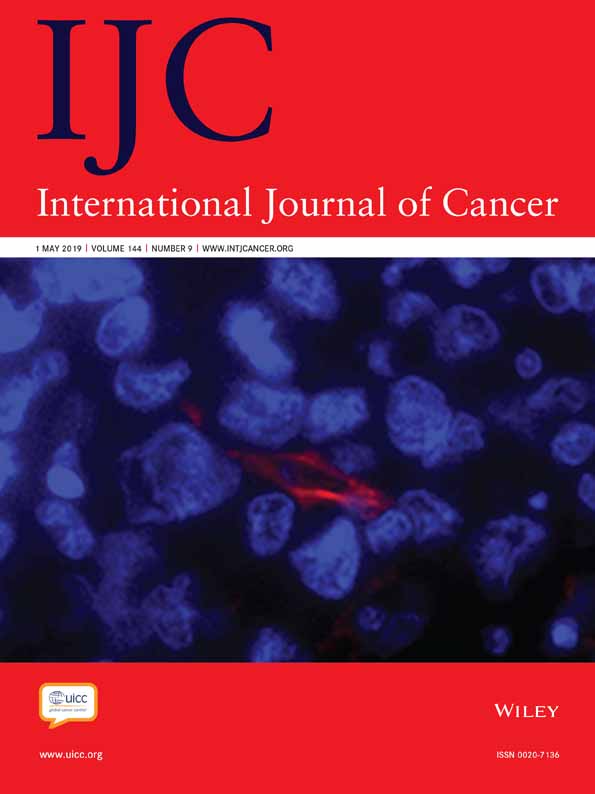Strong associations of a healthy lifestyle with all stages of colorectal carcinogenesis: Results from a large cohort of participants of screening colonoscopy
Abstract
The risk of developing colorectal cancer (CRC) is associated with a wide range of dietary and lifestyle factors. The individual contribution of single modifiable factors, such as alcohol consumption, physical activity, smoking, body mass index (BMI) or dietary components, to the development of CRC has been investigated extensively, but evidence on their combined effect at various stages of colorectal carcinogenesis is sparse. The aim of our study was to analyze the association of a healthy lifestyle pattern with prevalence of early and advanced colorectal neoplasms. A total of 13,600 participants of screening colonoscopy in Saarland/Germany (mean age 62.9 years) who were enrolled in the KolosSal study (Effektivität der Früherkennungs-Koloskopie: eine Saarland-weite Studie) from 2005 until 2013 were included in this cross-sectional analysis. Dietary and lifestyle data were collected and colonoscopy results were extracted from physicians’ reports. The association of an a priori defined healthy lifestyle score—including dietary intake, alcohol consumption, physical activity, smoking and BMI—with early and advanced colorectal neoplasms was assessed by multiple logistic regression analyses with comprehensive adjustment for potential confounders. Strong inverse dose–response relationships were observed between an overall healthier lifestyle pattern and presence of advanced colorectal neoplasms, nonadvanced adenomas and hyperplastic polyps (p value <0.0001 in all cases), with adjusted odds ratios (95% CI) for the highest compared to the lowest category of the healthy lifestyle score of 0.41 (0.30–0.56), 0.42 (0.33–0.54) and 0.39 (0.29–0.54) respectively. A healthy lifestyle is strongly associated with lower risk of all stages of colorectal neoplasms.
Abstract
What's new?
While lifestyle and dietary factors are associated with colorectal cancer risk, most studies have examined associations only for individual factors. The influence of combinations of factors on colorectal carcinogenesis remains uncertain. Here, the authors created a healthy lifestyle score based on five dietary and lifestyle factors combined: non-smoking, low alcohol intake, healthy diet, adequate physical activity, and healthy weight. In analyses of health data and colonoscopy findings for screening colonoscopy participants in Saarland, Germany, healthy lifestyle score was inversely associated with risk of colorectal neoplasms. The findings indicate that healthy lifestyle pattern lowers risk of all stages of colorectal carcinogenesis.




